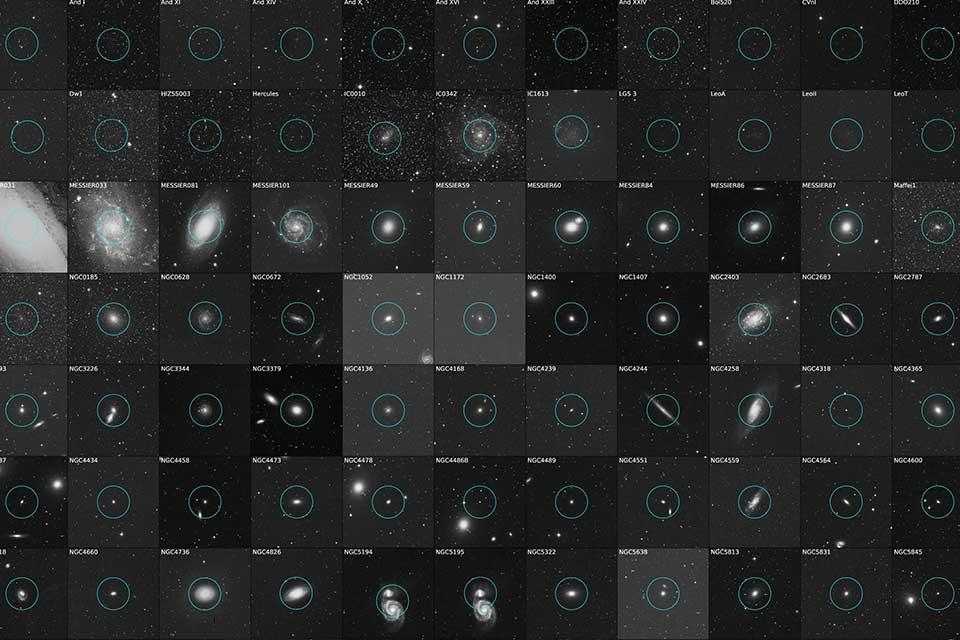Breakthrough Listen announce findings from the most sensitive search to date for ‘technosignatures’ – signs of intelligent life – beyond the Milky Way. More than 140 terabytes of data (the equivalent of watching more than five years of continuous high definition video) were acquired and analysed and while no ‘anomalies’ were reported, the search marks another milestone in the Breakthrough Listen programme. The findings have been published today in the Astronomical Journal.
In 2015, the Breakthrough Listen initiative was announced at the Royal Society in London. Its mission: to search for technosignatures from the nearest million stars, the plane of the Milky Way, and 100 nearby galaxies; Breakthrough Listen now has its international headquarters at the University of Oxford.
Breakthrough Listen junior researcher Carmen Choza led the search performed using the Robert C Byrd Green Bank Telescope (GBT) in West Virginia, USA. GBT splits the signals from receivers mounted on its 100-metre-diameter dish into billions of frequency channels, and searches the incoming data stream for candidate technosignatures – signals that appear obviously artificial, but have characteristics consistent with originating from fixed positions on the sky in the directions of the target galaxies.
Choza explains the significance of the work: ‘Although the energy required to broadcast a signal across intergalactic distances is huge compared to what’s achievable with current human technology, it is possible that given sufficient time, an extraterrestrial entity could develop these capabilities. Although these kinds of transmitters might be rare, our observations enable us to observe billions of stars at once in each galaxy, casting a wide net as we try to capture signals of interest.’
Choza also performed detailed testing of the signal processing pipeline to measure its effectiveness at detecting signals of interest. Her adviser, Dr Steve Croft, an astronomer at UC Berkeley and the SETI Institute, who is also a senior researcher at the new Breakthrough Listen headquarters at Oxford, adds: ‘Thanks to this work, we have gained not just a new understanding of the prevalence of advanced extraterrestrial technology in nearby galaxies, but of our own capabilities to perform this kind of search. This research also helps us understand the increasingly challenging environment for ground-based radio astronomy particularly as new satellite constellations blanket the Earth with their signals. Learning how to deal with this background “hum” is critical for any astronomer observing the sky at radio wavelengths.’
Dr Croft concludes: ‘It is exciting to see junior researchers leading so much of our cutting-edge research. Breakthrough Listen will soon open applications for research positions in 2024, including at the University of Oxford, and we encourage interested undergraduates to apply.’
The Breakthrough Listen search for intelligent life: technosignature search of 97 nearby galaxies, Choza et al, Astronomical Journal, 6 December 2023

